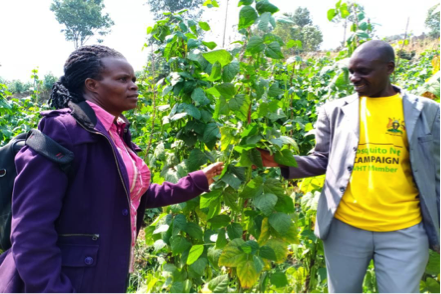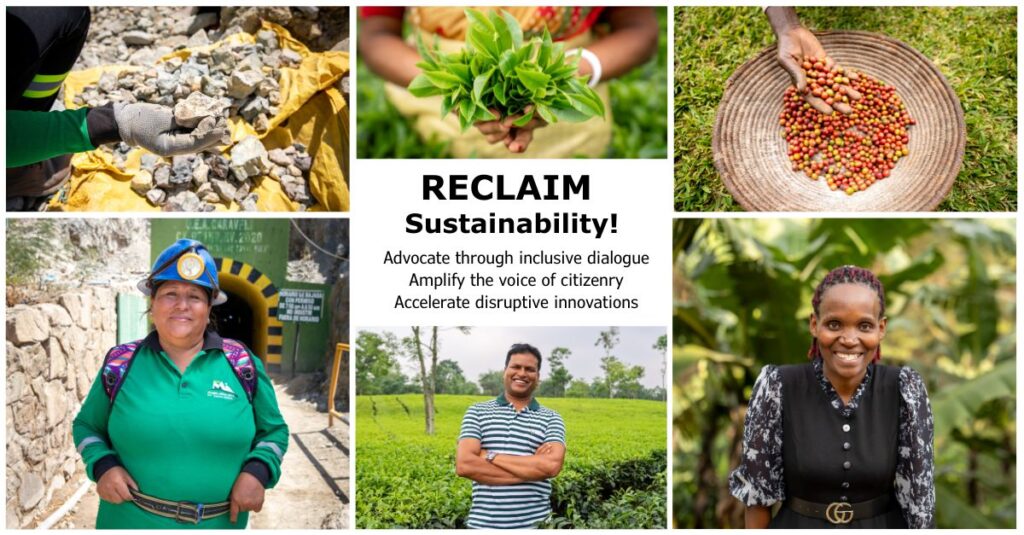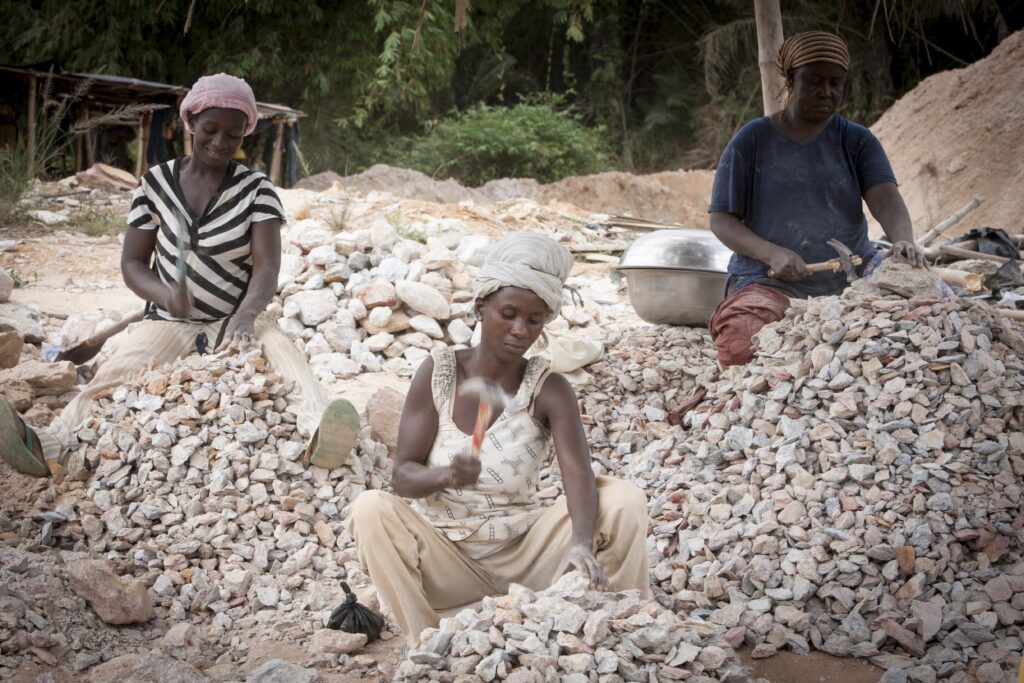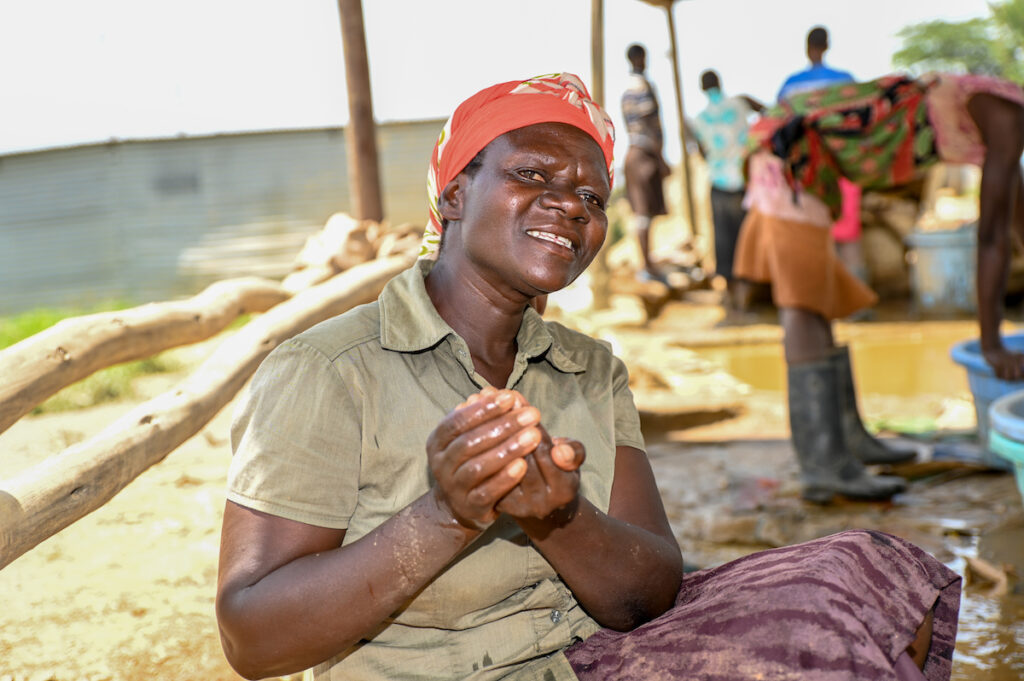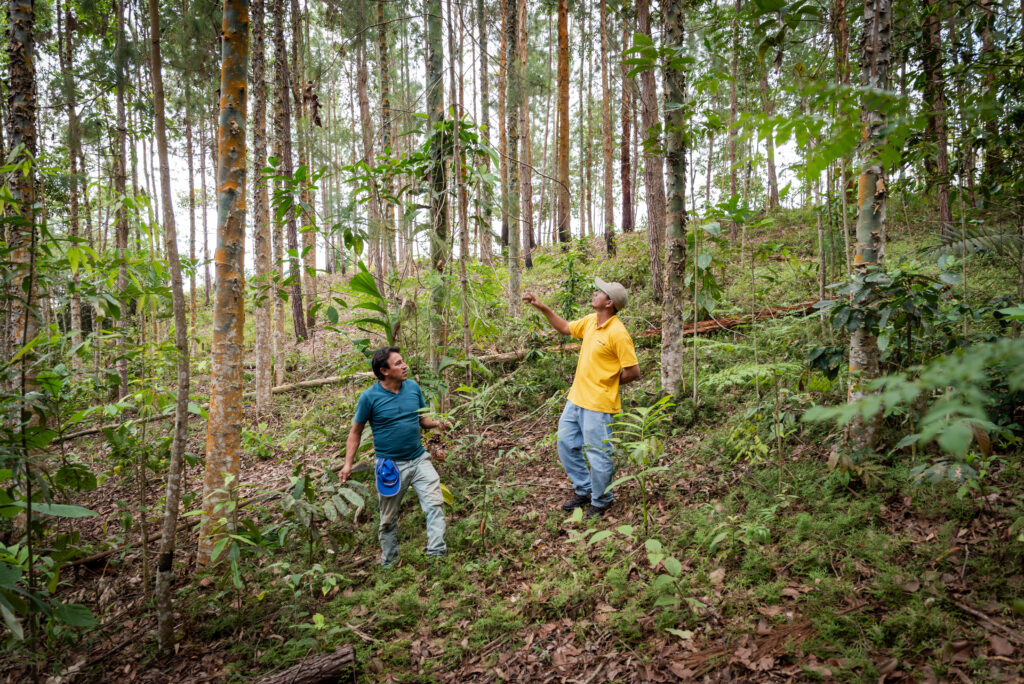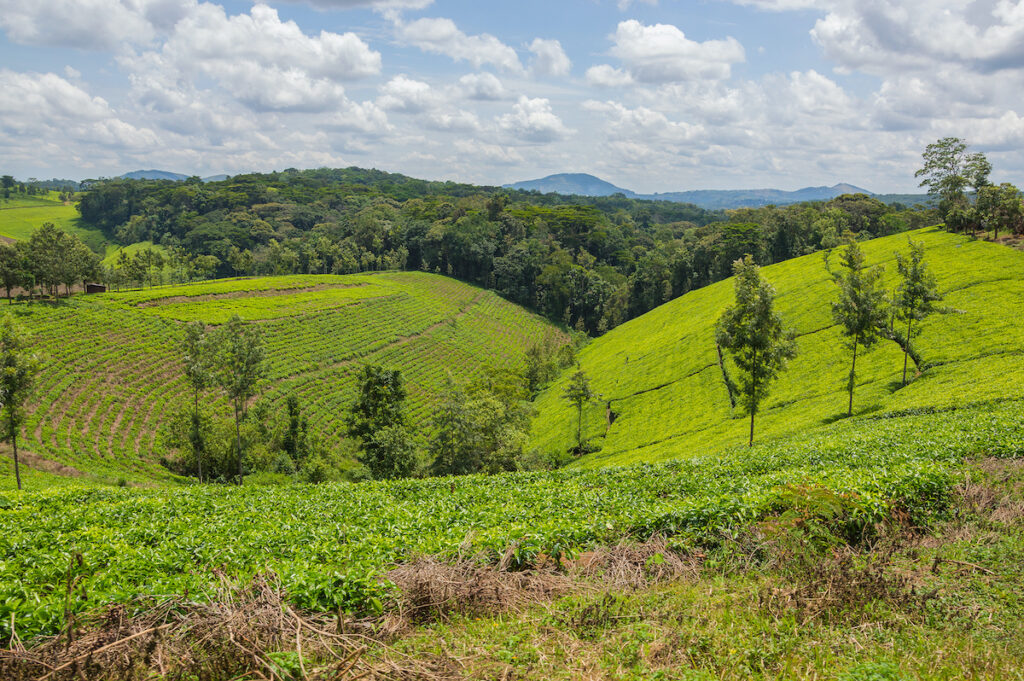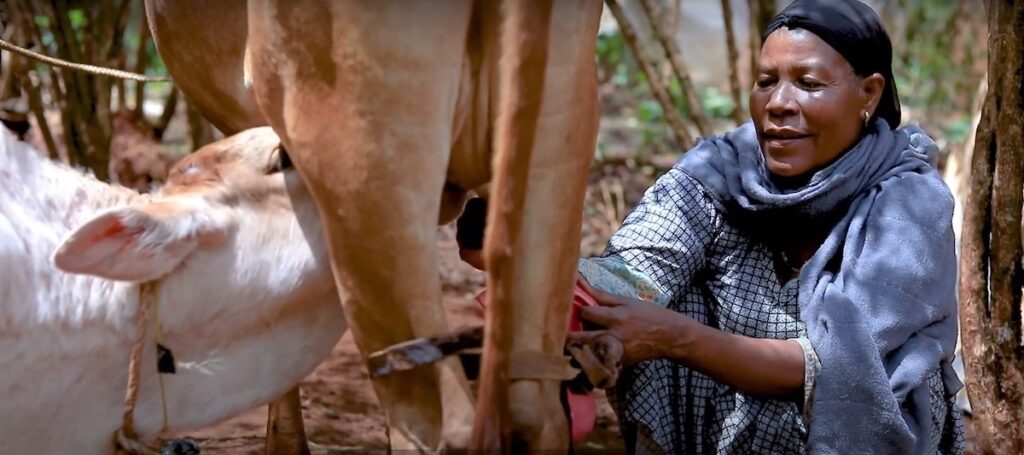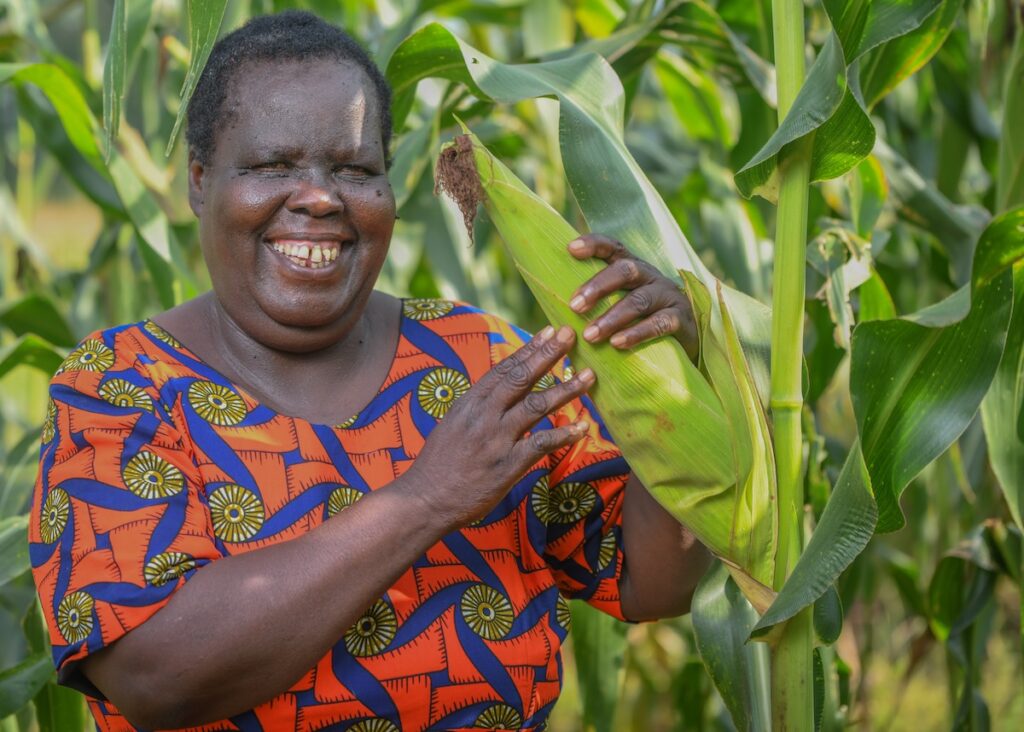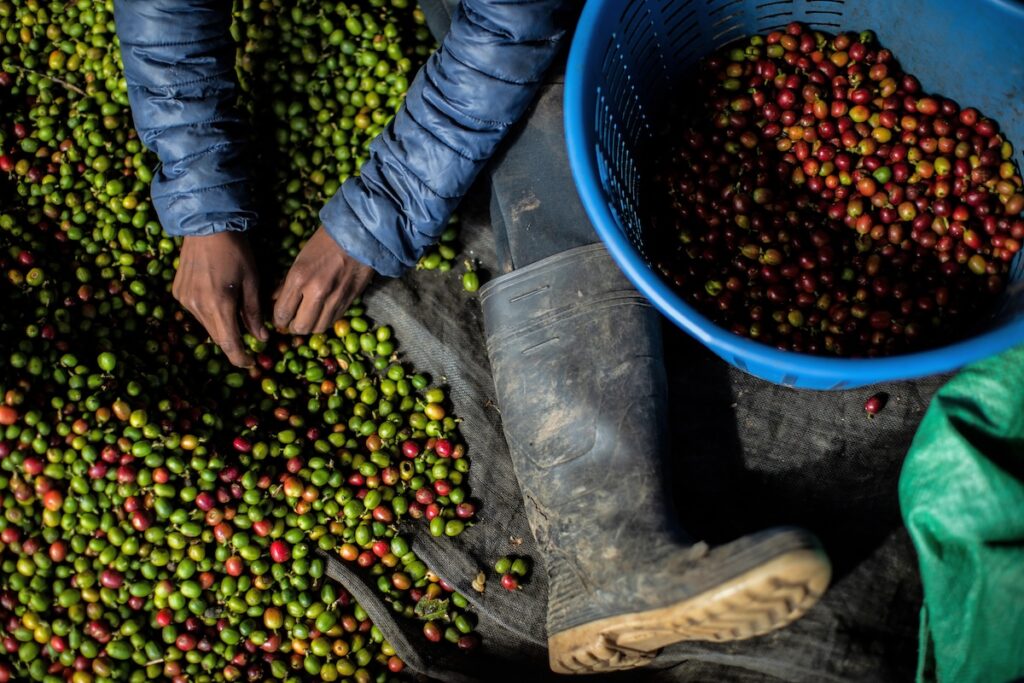Murandamo village in Kabale District, South-Western Uganda is home to hundreds of farmers. Forty-five-year-old Mr. Twesigye Erasmus is one of those farmers. This soft-spoken farmer, husband, and father of eight children has been farming for many years and depends solely on income from farming. Despite dedicating his life to farming, Mr. Twesigye recalls always struggling to feed his family, cater for his household expenses and pay his children’s school fees.
“I was farming on a small piece of land then. The returns from my efforts were meager and could barely cover the expenses for my large family,” Mr. Twesigye recalled.
Mr. Twesigye ventured into barley farming in 2016 with support from the Creating Shared Value in Agricultural Value Chains in Uganda project. Like many other farmers, he was growing maize, sorghum, Irish potatoes, and vegetables. Today, he produces barley on a five-acre piece of land, having increased acreage over the years! Mr. Twesigye attributes his growth to the aBi Development Limited-funded Creating Shared Value project.
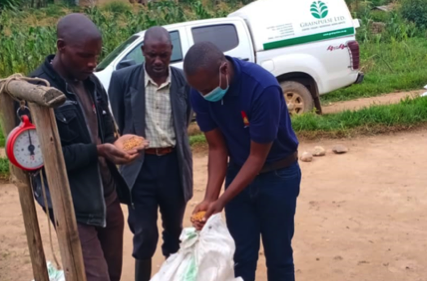
ACCESS TO HIGH-YIELD CROP VARIETIES
One of the biggest contributions to his success in recent years, Mr. Twesigye notes, has been easy access to high-yield barley varieties. The varieties provided by the Creating Shared Value project have been attributed to increased production. Mr. Twesigye adds that his farm’s yields have increased to between 900 and 1,100 kilograms per acre since he started growing the ‘Grace’ variety. In addition to barley, the project promoted bean farming as a rotational crop with the aim of improving households’ incomes and food security through crop diversification. Diversifying into bean farming according to Mr. Twesigye has enhanced food and nutrition security for many farming families including his.
CAPACITY BUILDING ON GOOD AGRICULTURAL PRACTICES
To improve production and productivity in barley farming, the Creating Shared Value project has been providing training to build farmers’ capacities in good agronomic practices. The training aimed to increase farmers’ knowledge and skills and were delivered through innovative methodologies including group sessions, demonstrations, and radio talk shows.
According to Mr. Twesigye, the capacity-building initiatives he benefited from under the Creating Shared Value project enabled him to adopt and implement good agronomic practices over the years. In addition, the progressive capacity building enabled him to grow from ‘a pioneer barley farmer to a lead farmer’ in his community.
As a lead farmer, I get the opportunity to train other farmers on improved agricultural practices. I also use my personal experience to persuade other farmers to venture into barley and bean farming. Because I was selected as a lead farmer on the basis of demonstrated expertise, this role has also enhanced my position as a farmer and member of my community.
Twesigye Erasmus
ACCESS TO ROBUST INFRASTRUCTURE
To enhance post-harvest handling processes for barley and beans, the Creating Shared Value project also supported different farmers groups with mobile threshers, solar dryers, weighing scales, Bag sewing machines and VLA kits moisture meters. The project also trained farmers on the equipment use to reduce post-harvest losses and ensure the quality of produce is maintained to match the market needs.
“Prior to receiving the equipment, post-harvest activities were too expensive for me. The equipment provided by the project has significantly reduced my operational costs and improved the quality and volume of barley!” Mr. Twesigye stated.
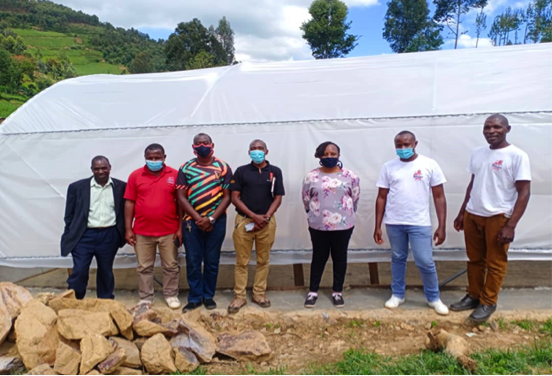
INCREASED ACCESS TO MARKETS
As one of the pioneer barley farmers in the Kigezi region, Mr. Twesigye highlighted supply of quality seeds, availability of extension services, and access to markets as some of the key benefits he has enjoyed from the Creating Shared Value project. These interventions, Mr. Twesigye notes, have contributed to the progressive increase in quantity and quality of barley and beans produced. Notably, market access through Uganda Breweries Limited has increased earnings for this farmer who admits that income from barley production enabled him to acquire additional land.
“Initially, access to farming land was a major challenge for me. I owned a one-acre piece of land which was not enough to support my growth ambitions in barley production. The growth in my income enabled me to acquire more land and increase acreage over the years,” Mr. Twesigye narrated.
Increased access to finance
Village Savings and Loans Associations play a critical role in bringing financial services to rural communities whose access to such services remains low. The project supported barley farmers and their communities to establish 340 Village Savings and Loans Associations groups thus increasing access to credit and savings to over 9,560 (60% women while 40% are men) farmers and local communities. The groups facilitated increased financial inclusion and household income security in addition to contributing to increased acreage through access to finance.
“Prior to the establishment of Village Savings and Loans Associations, I used to borrow money from lenders who would charge exorbitant interest rates, some above 20 percent.”
Coming together as farmers to form our own savings and lending groups has enabled us to save more and borrow at affordable interest rates. Specifically, my savings and lending group has given me the opportunity to secure funds to educate my children.
Twesigye Erasmus
THE FUTURE LOOKS BRIGHT
Previously, the life of farmers in Murandamo village was characterized by hard work, long hours of work, limited access to markets for their produce, limited knowledge on good farming practices, and lack of extension services. These were compounded by low incomes which were not commensurate with their level of effort. Today, the same farmers continue to reap the full benefits of their work.
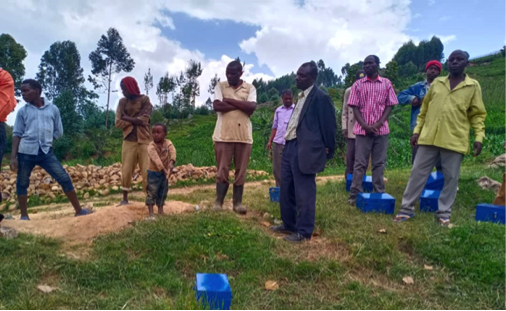
“Most farming families in this village were earning very little income from other farming activities until they decided to venture into barley farming. Unlike in the past, farmers are now able to secure good quality education for their children – all the way to the university level! Solidaridad through the Creating Shared Value project has transformed our lives and that of our children, the next generation of farmers and leaders for Uganda,” Mr. Twesigye observed.
As a lead farmer and top barley producer, Mr. Twesigye has hit numerous milestones. His most recent one being the establishment of the Butanda, Rubaya Barley Farmers’ Cooperative Association.
Barley farming has enabled me to lay a strong foundation for my children. I have even built a permanent house and my children are set to get quality education, something I never dreamed of!
Twesigye Erasmus
ABOUT THE CSV PROJECT
The Creating Shared Value in Agricultural Value Chains project in Uganda, an initiative being funded by aBi Development Limited and implemented by Solidaridad in partnership with Grain Pulse Limited and Uganda Breweries Limited as off takers. The project has been working to facilitate and build the capacity of 12,000 smallholder farmers to improve crop production and productivity, improve participation in the market bargain, improve access to inclusive financing and resource mobilization via village saving and loans association and strengthening farmers institutional capacity for sustainability. The project objectives were to (i) increase production and productivity of beans and barley (ii) increase access to markets for smallholder farmers through efficient aggregation and marketing systems and (iii) establish strong farmer institutions and improve farmers’ organization capacities and business skills.

